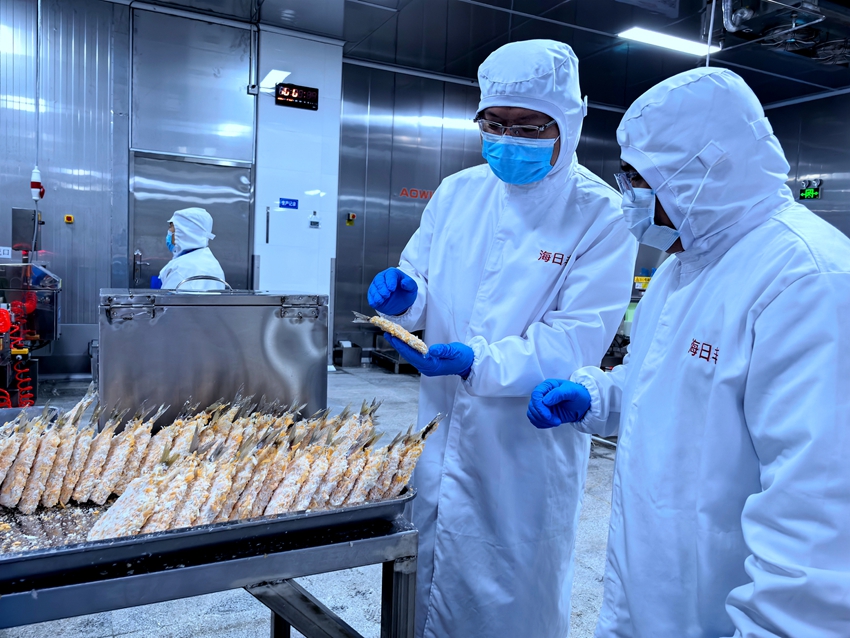- Updates
- News
Quanzhou News Network, May 9 (By Liu Wenyan; Correspondents Chen Rongxu and Wang Fengping)
Recently, a shipment of frozen breaded fish fillets—valued at 122,100 yuan—produced by Shishi Hairifeng Aquatic Products Co., Ltd., successfully cleared customs and was exported to Japan. This is the first time fish fillets made in Quanzhou have been shipped overseas, signaling a key milestone in the region's advancement into premium international seafood markets.

Quanzhou Customs officers inspect the fish fillets destined for export. (Photo by Hou Huayi)
Product Overview and Market Reception
The exported fillets are made from fish such as Spanish mackerel, mackerel, and sardines. After deboning, they are coated in batter and breadcrumbs before undergoing quick-freezing. The ready-to-cook product can be deep-fried directly by consumers and has become popular for its flavorful taste, nutritional value, and convenience. These advantages have led to purchase orders from Japanese food service businesses. Through value-added processing, the price of the final product is more than three times that of the raw materials.
"We've successfully completed the first export to Japan, and we're now ramping up production for 20 more container orders scheduled for delivery by the end of the year," said Li Guanghuan, General Manager of Shishi Hairifeng. "We've also developed new products—like breaded squid rings, breaded shrimp, and shrimp patties—which have already secured international orders. The reputation of Quanzhou-made fish fillets is growing rapidly!"
Meeting Stringent Quality Requirements
Japan maintains exceptionally high standards for imported animal-derived foods, requiring rigorous testing for microbes, contaminants, and additives. As a company primarily focused on primary processing, Shishi Hairifeng initially had limited experience with the deep processing required for export-grade seafood and was uncertain about meeting Japan's complex import standards and timelines.
Customs Guidance Enables Smooth Export
In response, Quanzhou Customs formed a dedicated one-on-one support team to guide the company through international food safety regulations. The team helped Hairifeng establish a hazard analysis-based food safety management system to ensure full compliance with Japanese standards. Recognizing the time-sensitive nature of cold-chain logistics, customs also implemented a green channel for local inspections and promoted the use of the "Smart Customs" cloud-based system for instant electronic document issuance—enabling the shipment to be cleared quickly and efficiently.
Strategic Implications
This successful export underscores Quanzhou's growing competitiveness in the global seafood industry and highlights the effectiveness of localized government support in helping enterprises navigate international regulations. It also illustrates how targeted innovation, product development, and regulatory alignment can create new pathways for regional products to access high-end global markets.
